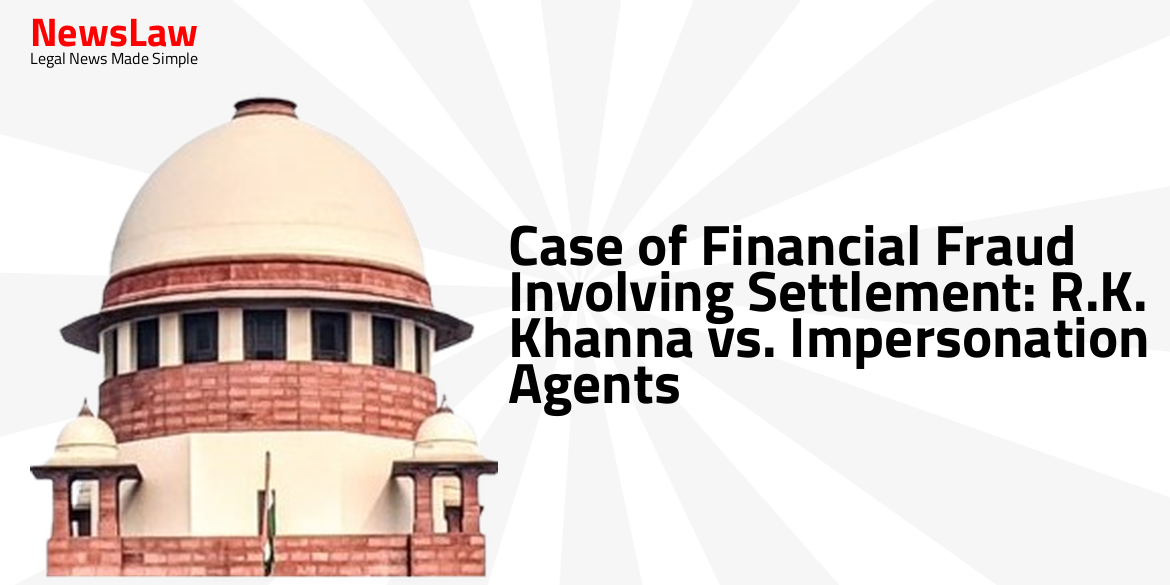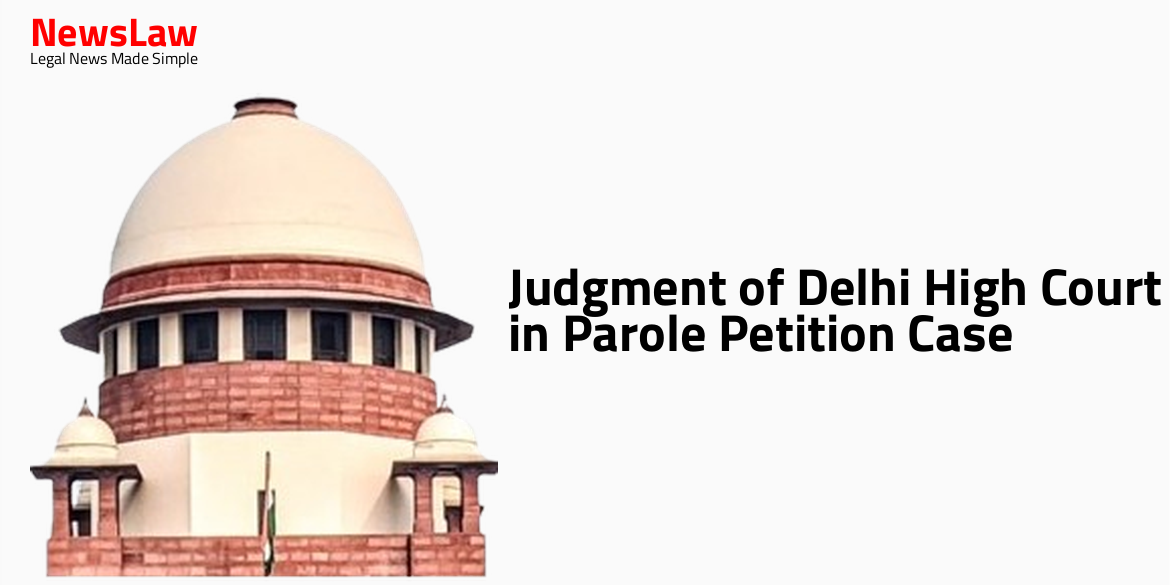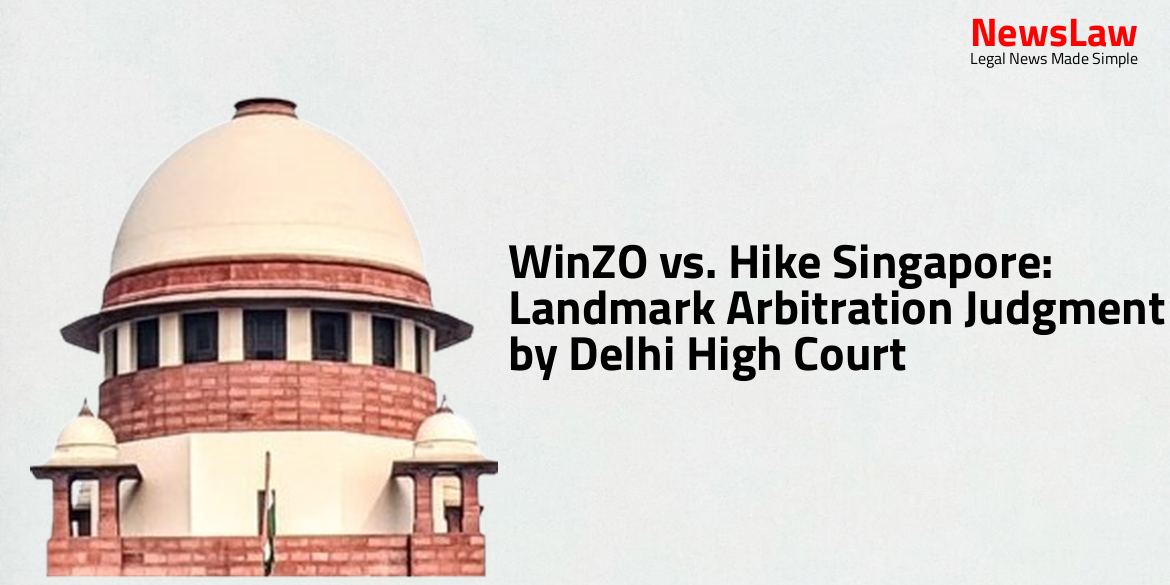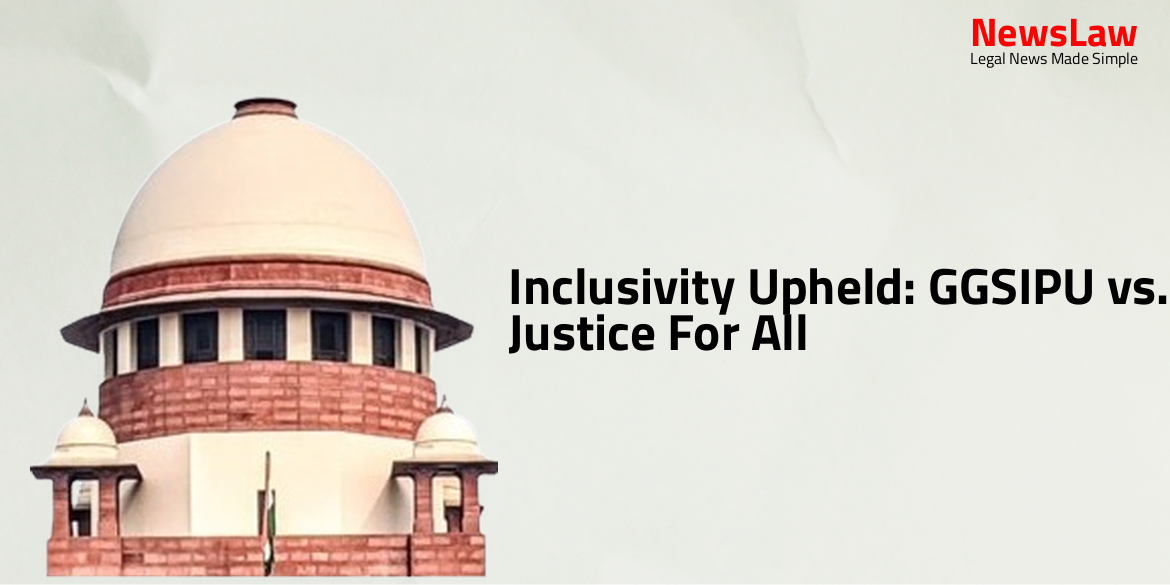In a significant legal case before the Delhi High Court, the matter of financial fraud involving settlement was deliberated upon in the case of R.K. Khanna vs. impersonation agents. The court’s ruling has far-reaching consequences regarding the impact of settlements in criminal proceedings related to economic offenses. Let’s explore the details and implications of this landmark judgment.
Facts
- The FIR was registered based on the complaint of Mr. R.K. Khanna, a businessman, stating that he was cheated of over Rs. 51 lakhs by the petitioners.
- The petitioners impersonated as agents of LIC and private financers to facilitate loans, promising Mr. R.K. Khanna a loan of Rs. 2 crores.
- Despite several promises, the loan amount was not disbursed to Mr. R.K. Khanna, leading to a request for a refund of Rs. 2,10,000 which was later increased to Rs. 51,60,000.
- The petitioners handed over two Demand Drafts totaling Rs. 9.50 lakhs to Mr. R.K. Khanna for settlement, along with obtaining personal documents from him.
- The petitioners further introduced themselves as officials from LIC and a private financial institution, promising loans and taking cash amounts from Mr. R.K. Khanna for various charges.
- The case was settled through mediation at Delhi High Court, but the investigation revealed similar fraudulent activities by the petitioners with other individuals.
- The petitioners continued to come up with fabricated stories to explain the delay in loan disbursement, ultimately deceiving Mr. R.K. Khanna of large sums of money.
Arguments
- The learned counsel for the petitioners relied on the judgment of the Supreme Court in Nikhil Merchant v. Central Bureau of Investigation & Anr. , (2008) 9 SCC 677.
- The counsel also cited judgments of the Court in Himanshu Dawar v. State & Anr. , 2014 SCC OnLine Del 7585, and Punish Jindal v. State & Ors. , 2008 SCC OnLine Del 453.
- It was argued that once respondent no.2 expresses no objection to quashing the FIR, continued pursuit of the case serves no purpose, particularly in settled civil disputes.
- The counsel emphasized that the FIR should be quashed when civil disputes are resolved.
- Petitioners settled their dispute with Respondent No. 2 but the FIR cannot be quashed solely based on the settlement.
- The petition is to quash an FIR, not a private complaint.
- Prima facie evidence suggests the petitioners forged LIC letter-head to gain trust.
- The petitioners are accused in two other FIRs for similar offenses.
- Supreme Court’s parameters state that heinous crimes like murder or rape cannot be quashed based on settlement.
- Crimes with a civil nature arising from commercial or family disputes can be quashed if parties reach a settlement.
- High Court should consider if conviction is unlikely and continuing the case would oppress the accused.
- Offenses under Section 307 IPC are considered serious crimes against society and should not be quashed easily.
- The nature of injury, weapons used, and evidence collected should be considered in cases involving Section 307 IPC.
Analysis
- The court emphasized that in cases where a crime affects society and its interests as a whole, the court cannot allow proceedings to be withdrawn or quashed based on settlements.
- In situations where the charge is framed but evidence is yet to start or still at an early stage, the High Court may consider exercising its powers after a prima facie assessment.
- The alleged fiscal impurity and financial fraud in availing money from a nationalized bank hold serious implications and societal impact.
- The court highlighted that the act of impersonating as LIC officers and fabricating its letterhead affects not only individual victims but also the society and the State at large.
- The timing of settlement plays a crucial role in the decision to quash criminal proceedings, with immediate settlements post-offence and during investigation being viewed differently.
- The settlement leading to harmony between parties may be considered favorably, but the court must assess the potential impact on economic stability and the likelihood of conviction before deciding on quashing criminal proceedings.
- The gravity of the offense in cases like financial fraud creates a significant impact on the nation’s economic well-being and should be carefully assessed by the court.
- Investigate if the modus operandi has been used by the petitioners to defraud others.
- Look into any evidence of fraudulent activities adopted by the petitioners.
- Determine if there is a pattern of fraudulent behavior by the petitioners.
Decision
- The petition is dismissed
- No merit found in the present petition
Case Title: SHAN MIYAN CHAUDHARY AND ORS Vs. STATE(NCT OF DELHI) & ANR. (2024:DHC:4031)
Case Number: W.P.(CRL)-969/2024



